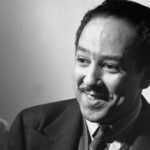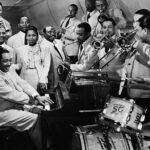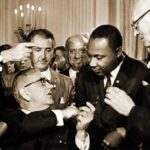William Edward Burghardt Du Bois, commonly known as W.E.B. Du Bois, was a trailblazing African American sociologist, historian, civil rights activist, and co-founder of the National Association for the Advancement of Colored People (NAACP). His life and work significantly impacted the trajectory of civil rights and African American intellectual thought. This article explores his background, family, contributions, and features some of his insightful quotes and speeches.
H1: Early Life and Background
Born on February 23, 1868, in Great Barrington, Massachusetts, Du Bois experienced both the promise and challenges of early education. His intellectual curiosity and academic prowess laid the foundation for a lifelong commitment to education and social justice.
H2: Family Life
Du Bois married Nina Gomer in 1896, and together they had two children. Despite personal challenges, Du Bois maintained a strong dedication to family throughout his life.
H3: Education and Early Career
Du Bois’ pursuit of education was relentless. He became the first African American to earn a Ph.D. from Harvard University in 1895. His early career involved teaching, research, and a focus on addressing social issues faced by the African American community.
Quotes and Speeches
H1: “The Souls of Black Folk”
Du Bois’ seminal work, “The Souls of Black Folk,” published in 1903, remains a cornerstone of African American literature. In this collection of essays, he explores the concept of “double consciousness” and the challenges faced by African Americans in a society marked by racial prejudice.
“The problem of the twentieth century is the problem of the color line.”
H2: “Atlanta Compromise” and Critique
Du Bois critiqued Booker T. Washington’s “Atlanta Compromise” in his famous essay, asserting the need for higher education and social and political rights for African Americans.
“We want for our children, in common with your children, schools, opportunities for higher education.”
Contributions and Legacy
W.E.B. Du Bois’ contributions to the civil rights movement are multifaceted. As a co-founder of the NAACP, editor of The Crisis magazine, and author of numerous influential works, his intellectual leadership and activism significantly advanced the cause of racial equality.
Top 10 Most Popular Questions about W.E.B. Du Bois
- When was W.E.B. Du Bois born?
- Du Bois was born on February 23, 1868.
- Where was W.E.B. Du Bois born?
- He was born in Great Barrington, Massachusetts.
- What is W.E.B. Du Bois’ full name?
- William Edward Burghardt Du Bois.
- What is “The Souls of Black Folk”?
- It’s a collection of essays exploring the experiences of African Americans, published in 1903.
- What is “double consciousness” according to Du Bois?
- It refers to the psychological challenge of having a dual identity, torn between one’s own identity and how society perceives them.
- What is the “Atlanta Compromise,” and how did Du Bois critique it?
- The “Atlanta Compromise” was a speech by Booker T. Washington promoting vocational education and accommodation with segregation. Du Bois critiqued it, advocating for higher education and political rights.
- What is the NAACP, and what was Du Bois’ role in its founding?
- The NAACP is the National Association for the Advancement of Colored People. Du Bois co-founded it and served as a key leader and editor of The Crisis.
- How did Du Bois contribute to education?
- Du Bois emphasized the importance of higher education for African Americans and worked to establish institutions for black scholars.
- What is “The Crisis” magazine?
- It’s the official magazine of the NAACP, edited by Du Bois. It provided a platform for African American writers and intellectuals.
- What is W.E.B. Du Bois’ legacy?
- His legacy includes pioneering sociological research, advocacy for civil rights, and a lasting impact on African American intellectual thought.
Conclusion
W.E.B. Du Bois’ life is a testament to intellectual rigor, activism, and the relentless pursuit of equality. His scholarship and leadership continue to inspire movements for civil rights and social justice, leaving an indelible mark on American history and the ongoing struggle for equality.




